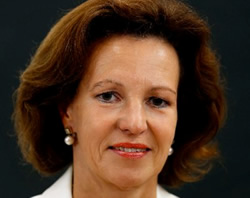 Diplomats and other staff at United Nations centres around the world are struggling to shift to virtual business in the wake of the COVID-19 pandemic, documents show.
Diplomats and other staff at United Nations centres around the world are struggling to shift to virtual business in the wake of the COVID-19 pandemic, documents show.
The UN Security Council lost more than a week tackling a host of technical difficulties and political disputes before finally settling on a strategy for approving UN mandates.
The UN Human Rights Council is still struggling to conduct its business, according to the minutes of an internal meeting at its office in Geneva (UNOG).
“UNOG stressed that conducting meetings via an online platform would be labour intensive and require a significant amount of human resources, thus under the current circumstances UNOG would only be able to service one meeting per day,” the minutes said.
The Director of UNOG’s Division for Conference Management informed member States that the Geneva headquarters “would remain open only to a limited number of essential staff and would not likely open for regular business within the next weeks”.
IT technicians are testing various online options to determine whether they can securely encrypt sensitive diplomatic discussions and guard against hacks and other threats to UN cybersecurity.
The UN is also striving to facilitate formal meetings of the Human Rights Council, complete with live, virtual interpretation of discussion in the six official languages —Arabic, Chinese, English, French, Russian, and Spanish.
For the time being, scaled-down meetings led by Austria’s UNOG Ambassador, Elisabeth Tichy-Fisslberger (pictured), and including four envoys representing Africa, Asia, Latin America, and Eastern Europe, are being conducted online.
Geneva, 4 April 2020











